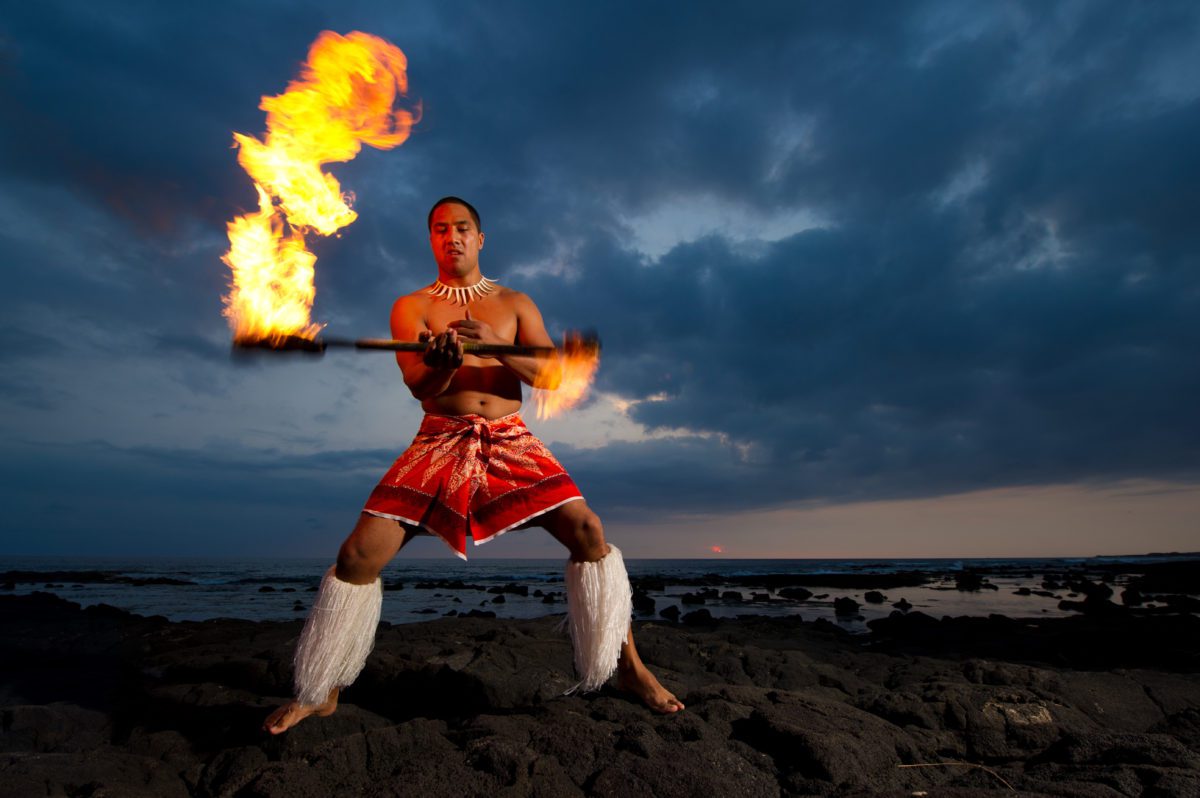 |
| Nikon D4, 14-24mm ƒ/2.8, ISO 200, ƒ/16, 1/200 with 2 Alienbees with CTO 1 for off-camera flash. These are triggered with the Pocketwizard Radio Remotes. |
I enjoyed shooting these photos of the Island Breeze Impact Tour cast at the Old Kona Airport State Park on the Big Island of Hawaii. In this setting, I took control of the situation as compared to the night before, when I was photographing them while they were putting on a Luau.
While the stage lighting is excellent, the amount of light they use in the show is minimal.
 |
| Fuji X-E2, XF 55-200mm, ISO 6400, ƒ/4.6, 1/125 |
The show I was shooting at ISO 6400 with ƒ/4.6 and a 1/125 setting compared to the controlled shooting on the beach with ISO 200, ƒ/16, and 1/200.
 |
| Nikon D4, 14-24mm ƒ/2.8, ISO 200, ƒ/14, 1/320 |
I am in Hawaii teaching lighting to YWAM School of Photography students. We went to the beach for them to see me shoot mixed light, where I added light to the scene to help make the photos better.
 |
| Nikon D4, 14-24mm ƒ/2.8, ISO 200, ƒ/14, 1/400 no flash |
As you can see in the photo, there is no flash; it is more of a silhouette.
 |
| Photo by David White |
In this photo, you can see it was taken by my assistant David White. First, I set this up using the Alienbees B1600 flash with CTO 1 over the strobes to warm up the subject, and then I color-corrected for the light, which made the sky even bluer.
 |
| Two Alienbees B1600 at full power on the right at 45º with CTO Gels. |
 |
| Nikon D4, 14-24mm ƒ/2.8, ISO 200, ƒ/22, 1/20 |
Brooke Valle, a former student of mine, is part of Island Breeze and is spinning the POI. I worked with her to have her friends and family in the cast come and help us with the photo shoot.
Brooke is spinning the “POI” [it is the Maori word for “ball” on a cord].
 |
| Nikon D4, 14-24mm ƒ/2.8, ISO 200, ƒ/16, 1/400 |
Due to working around other events, we could not shoot right at sunset. So we shot had to stop about 30 minutes before the sunset. Had we been able to go later, the sky would have been a little darker and more vibrant than in these photos.
I am under-exposing the subject about two stops to get the background to saturate and be darker. I then am overexposing the issue by two stops with the strobes. The combination of the under-exposure on the camera and the overexposure with the lights makes the subject well-exposed; the background is slightly under-exposed and a little more saturated than what the naked eye saw.
 |
| Nikon D4, 14-24mm ƒ/2.8, ISO 200, ƒ/8, 1/400 |
If we had waited a little longer, then flame would also have shown up even more.
 |
| Nikon D3S, 14-24mm ƒ/2.8, ISO 200, ƒ/7.1, 1/100 |
Two years ago, I did a similar shot, and by waiting till the sun dipped below the horizon, I could capture the flame much better because the sky was darker.
The class enjoyed watching and seeing all the lights set up and also taking some of their photos of the cast in costume.
 |
| Fuji X-E2, 18-55mm, fill flash -1 EV, ISO 6400, ƒ/5, 1/15 |


